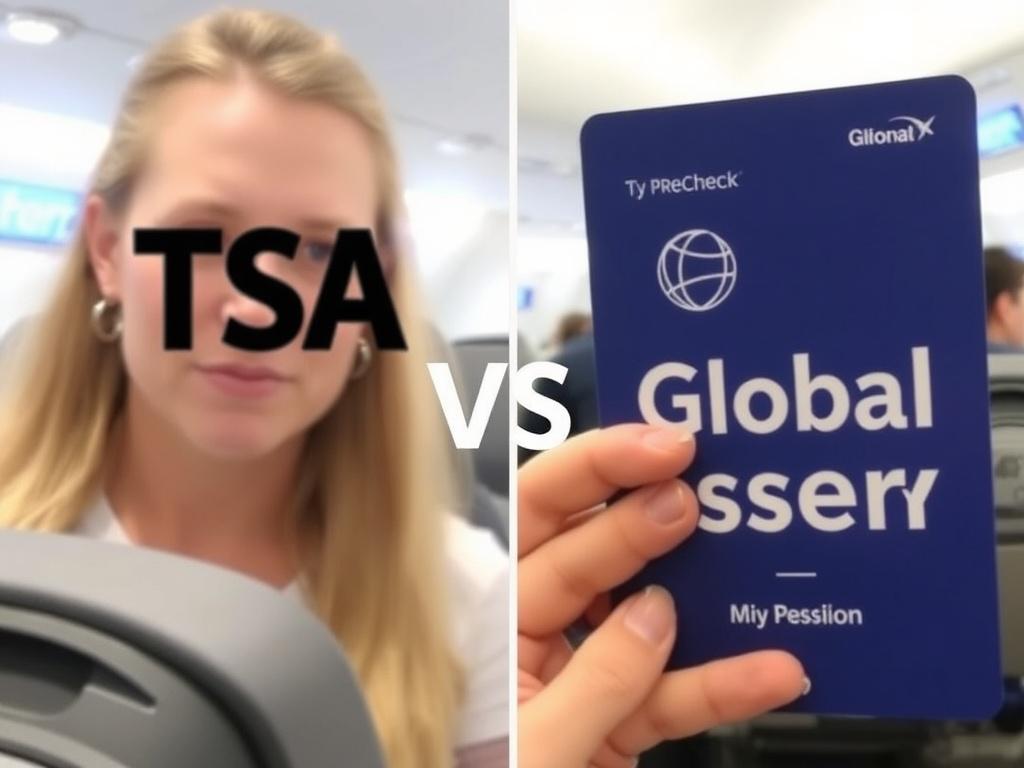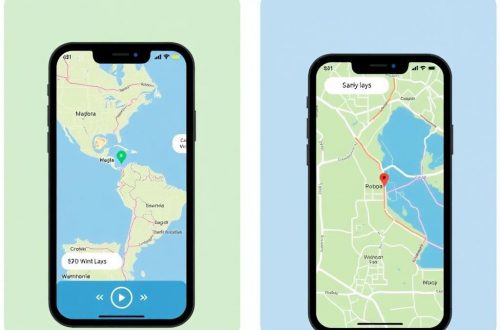
TSA PreCheck vs. Global Entry: Which Is Better for You?
Traveling can either be a breeze or a hassle, depending on how well you’re prepared. Among the many ways to simplify your airport experience, TSA PreCheck and Global Entry stand out as two popular programs designed to speed you through security and immigration lines. But which one is the best choice for you? If you’re wondering about TSA PreCheck vs. Global Entry, this comprehensive guide will walk you through everything you need to know, helping you make an informed decision.
Understanding TSA PreCheck
TSA PreCheck is a program run by the Transportation Security Administration in the United States. It allows eligible travelers to experience faster screening at domestic airports. Members don’t have to remove shoes, laptops, liquids, belts, or light jackets when going through security, which can save a lot of time and hassle—especially if you fly frequently within the U.S.
Applying to TSA PreCheck involves an online application followed by an in-person appointment where your fingerprints are taken, and a background check is conducted. Once approved, you get a Known Traveler Number (KTN), which you enter when booking flights.
TSA PreCheck is perfect for people who primarily fly domestically and want to avoid long security lines. It’s also less expensive and easier to obtain than Global Entry, making it a great starting point for frequent flyers.
What is Global Entry?
Global Entry, run by U.S. Customs and Border Protection (CBP), is designed for travelers who often re-enter the United States from international destinations. This program allows expedited clearance through U.S. customs and immigration lines at participating airports. Once approved, Global Entry members can use automated kiosks upon arrival, bypassing the lengthy passport control lines.
An added bonus: Global Entry includes TSA PreCheck benefits, so members are automatically eligible for expedited security screening on domestic flights as well.
To apply for Global Entry, you must submit an online application, pay a fee, and attend an in-person interview at a Global Entry Enrollment Center. The process is more rigorous compared to TSA PreCheck but offers broader benefits for international travelers.
Key Differences Between TSA PreCheck and Global Entry
Now that you understand the basics of both programs, let’s look closely at the most important differences between TSA PreCheck vs. Global Entry in terms of cost, processing times, where you can use them, and eligibility requirements.
| Feature | TSA PreCheck | Global Entry |
|---|---|---|
| Cost | $85 for 5 years | $100 for 5 years (includes TSA PreCheck) |
| Usage | Expedited security screening at U.S. airports (domestic flights mainly) | Expedited customs clearance entering U.S. + TSA PreCheck benefits |
| Application Process | Online application + in-person appointment for fingerprinting | Online application + in-person interview + fingerprinting |
| Ideal For | Frequent domestic travelers | Frequent international travelers |
| Time Savings | Time saved during airport security | Time saved on both airport security and customs processing |
| Additional Benefits | None | Participation in TSA PreCheck + faster re-entry into U.S. |
Applying: What to Expect
Both programs require you to fill out an online application and then complete an in-person appointment. However, the Global Entry interview tends to be more detailed, often involving questions about your travel history, employment, and personal background. The interview also takes place at a dedicated Global Entry Enrollment Center, which can sometimes be hard to find or require an appointment far in advance.
TSA PreCheck’s enrollment centers are more plentiful, often located at convenient places including airports, making it easier for many applicants.
TSA PreCheck Application Steps:
- Submit an online application through the TSA website
- Schedule an appointment at a nearby enrollment center
- Attend the appointment for fingerprinting and ID verification
- Receive approval and your Known Traveler Number (KTN)
Global Entry Application Steps:
- Complete an online application on the CBP website
- Pay a $100 non-refundable fee
- Wait for conditional approval
- Schedule and attend an in-person interview
- Fingerprinting and final approval
- Receive your Global Entry card and Known Traveler Number
Benefits of TSA PreCheck and Global Entry
Both TSA PreCheck and Global Entry offer significant time savings, but each program’s benefits cater to different traveler needs. Let’s break down their perks:
Benefits of TSA PreCheck
- Less time standing in security lines
- Keep shoes, belts, and coats on during screening
- Laptops and liquids stay in your bag
- Available at over 200 U.S. airports and 80+ airlines
- Great for frequent domestic flyers
Benefits of Global Entry
- All TSA PreCheck benefits included
- Expedited U.S. customs processing for international arrivals
- Access to Global Entry kiosks at major airports
- Available at 60+ airports worldwide
- Works well for frequent international travelers
- Sometimes allows expedited entry into partner countries
Who Should Choose TSA PreCheck?
If most of your travel happens domestically—whether for business or pleasure—TSA PreCheck is a convenient and straightforward option. Its lower price and simpler application process mean you can get through airport security quicker without breaking the bank or going through complex interviews. It’s especially useful if you don’t travel internationally enough to justify a more involved process.
Who Should Go for Global Entry?
For those who travel internationally, Global Entry is a no-brainer. While it costs a bit more and requires an interview, the time you save upon arriving back in the U.S. can be substantial, often shaving off hours of waiting in customs lines. Since Global Entry also includes TSA PreCheck privileges, you get the best of both worlds with one application. It streamlines the entire journey—both arrival and departure.
Comparing Costs: Is Global Entry Worth the Extra $15?
It might seem like TSA PreCheck’s $85 fee is cheaper, but when you consider that Global Entry costs $100 and includes TSA PreCheck benefits, the difference between the two is marginal. In fact, many credit cards offer reimbursement for one of these application fees as a travel perk.
Cost Breakdown
| Program | Application Fee | Validity | Annual Cost |
|---|---|---|---|
| TSA PreCheck | $85 | 5 years | $17/year |
| Global Entry (includes TSA PreCheck) | $100 | 5 years | $20/year |
Real-World Experiences: TSA PreCheck vs. Global Entry
Many travelers report remarkable reductions in stress and wait times when using either program. For frequent domestic flyers such as business travelers or family vacationers, TSA PreCheck is a game-changer. Lines tend to be shorter, and the process feels less cumbersome.
For frequent international travelers, Global Entry can transform the re-entry process into a seamless part of your trip. Instead of feeling exhausted and standing in potentially hours-long customs lines, you breeze through and get on with your day more quickly.
Airports Participating in Both Programs
- Hartsfield-Jackson Atlanta International Airport (ATL)
- Los Angeles International Airport (LAX)
- Chicago O’Hare International Airport (ORD)
- Dallas/Fort Worth International Airport (DFW)
- John F. Kennedy International Airport (JFK)
- San Francisco International Airport (SFO)
- Miami International Airport (MIA)
- Seattle-Tacoma International Airport (SEA)
Other Trusted Traveler Programs to Consider
If you delve into this world further, you’ll find other programs like NEXUS and SENTRI aimed at easing entry between specific countries (e.g., U.S. and Canada or U.S. and Mexico). These programs sometimes include TSA PreCheck benefits too but have more specific eligibility requirements.
Here’s a quick overview:
| Program | Ideal For | Cost | Benefits |
|---|---|---|---|
| NEXUS | Frequent travelers between U.S. and Canada | $50 for 5 years | Expedited crossing at land borders + TSA PreCheck |
| SENTRI | Frequent travelers between U.S. and Mexico | $122.25 for 5 years | Expedited U.S.-Mexico border crossing |
Tips to Maximize Your TSA PreCheck or Global Entry Experience
Getting enrolled is just the first step. To truly reap the benefits:
- Always add your Known Traveler Number when booking flights. Without it, you won’t get expedited screening.
- Keep an updated address and personal information on your trusted traveler profile to avoid delays.
- Check participating airlines and airports since TSA PreCheck lanes are not universally available.
- Renew your membership on time to avoid losing your benefits.
- Consider your travel patterns—frequent international travelers should lean toward Global Entry.
Possible Downsides and Considerations
While these programs offer great benefits, there are some things to keep in mind:
- Not guaranteed every time: TSA PreCheck eligibility is determined per flight, so you might not always get the expedited lane.
- Security screenings remain thorough: Being PreCheck or Global Entry doesn’t exempt you from random additional screening.
- Application process can be lengthy: Especially for Global Entry, there can be significant wait times for interviews.
- Privacy concerns: You provide personal data and biometric information during enrollment.
Industry Insights and Future Trends
As airport security technology advances, programs like TSA PreCheck and Global Entry evolve too. Expect enhanced biometrics, facial recognition, and mobile app integration to optimize traveler experiences. Moreover, global partnerships between trusted traveler programs may expand, offering even broader expedited travel benefits across countries.
Which One Fits Your Lifestyle?
Ultimately, the answer to TSA PreCheck vs. Global Entry depends on how and where you travel. If you primarily take domestic flights within the U.S. and want a simple, cost-effective way to reduce wait times during airport security, TSA PreCheck fits the bill. But if you’re a jetsetter who frequently crosses international borders, Global Entry delivers greater value with its combined perks.
Conclusion
Choosing between TSA PreCheck and Global Entry isn’t as complicated as it may seem once you understand what each program offers. TSA PreCheck provides an excellent, streamlined security experience for domestic travelers at a reasonable price, while Global Entry offers comprehensive benefits, covering both international customs clearance and TSA PreCheck privileges. By weighing your typical travel patterns, budget, and time-saving needs, you can confidently decide which program suits you best—or even choose to enroll in both for the ultimate convenience. No matter which you pick, these trusted traveler programs are designed to make flying less stressful and more enjoyable, so you can focus on the adventure ahead.




